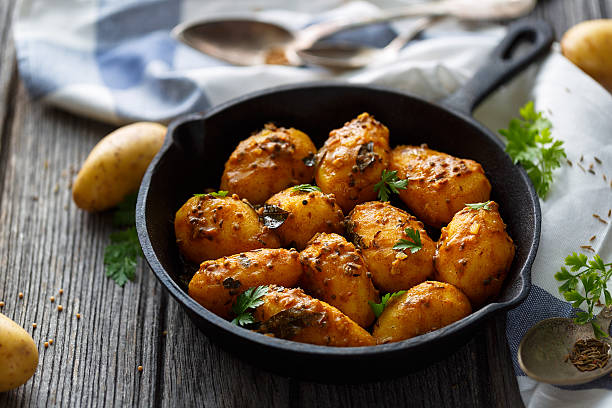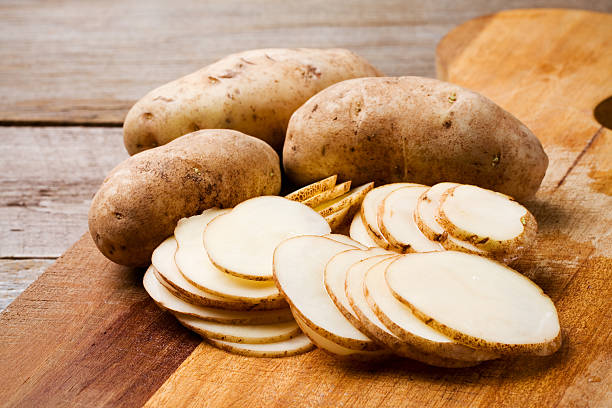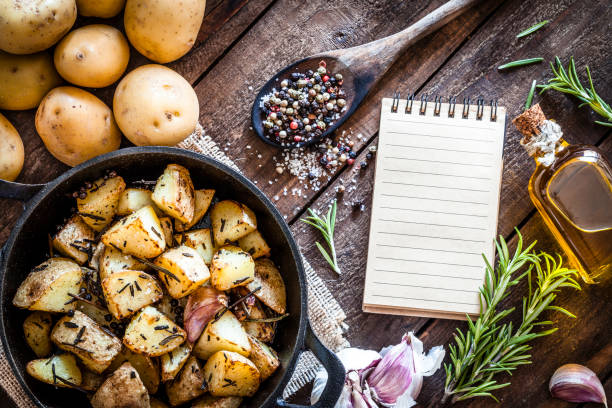Russet potatoes are a kitchen staple, loved for their versatility and comforting taste. From baked potatoes to crispy fries, these spuds are found in many homes across the world. But beyond their deliciousness, russet potato nutrition is something worth exploring. Packed with essential nutrients, russet potatoes are not only affordable but also a nutritious addition to your diet. In this article, we’ll dive into the nutritional benefits of russet potatoes and how they can be part of a healthy eating plan.
Table of Contents
Rich in Potassium for Heart Health
One of the standout features of russet potato nutrition is its high potassium content. A medium-sized russet potato (around 150 grams) contains approximately 620 milligrams of potassium. This is about 15% of your recommended daily intake of potassium. Potassium plays a vital role in supporting heart health by regulating blood pressure, muscle function, and fluid balance in the body. For individuals looking to boost their potassium intake, russet potatoes are an excellent natural source of this important mineral.

A Great Source of Vitamin C
In addition to potassium, russet potatoes are also a good source of vitamin C. One medium-sized potato can provide about 30% of your daily vitamin C needs. Vitamin C is an essential nutrient that supports the immune system, promotes healthy skin, and acts as an antioxidant. Regularly incorporating russet potatoes into your diet can help you meet your vitamin C needs while benefiting from other nutrients in the potato.
High in Fiber for Digestive Health
Fiber is another important component of russet potato nutrition. A medium russet potato contains about 2 grams of fiber, and if you eat the skin, you can significantly increase this amount. Fiber is crucial for maintaining a healthy digestive system, helping to prevent constipation and promoting overall gut health. Additionally, fiber helps regulate blood sugar levels and contributes to feelings of fullness, which can aid in weight management. Eating russet potatoes with the skin on is an easy way to increase your fiber intake while enjoying a tasty meal.

Low in Fat and Cholesterol-Free
When it comes to russet potato nutrition, it’s good to note that these potatoes are naturally low in fat and have zero cholesterol. This makes them a heart-healthy choice, especially when prepared using healthy cooking methods like baking, boiling, or roasting. Avoiding unhealthy cooking methods like deep-frying can help preserve their low-fat benefits and make them a nutritious addition to any meal.
Complex Carbohydrates for Steady Energy
Russet potatoes are rich in complex carbohydrates, which are an excellent source of long-lasting energy. Unlike simple carbs that cause rapid spikes and crashes in blood sugar, complex carbohydrates are digested more slowly, providing a steady release of energy throughout the day. This makes russet potatoes an ideal food for sustained energy, whether you’re working out, running errands, or simply going about your daily activities. Including russet potatoes in your diet can help fuel your body for extended periods without the risk of energy crashes.

Versatility in the Kitchen
Another great aspect of russet potato nutrition is their incredible versatility. These potatoes can be prepared in so many ways, making them suitable for various meals. Whether you enjoy baked potatoes, mashed potatoes, or potato salads, russet potatoes can be adapted to fit your preferences. They also work well in soups, stews, and casseroles, adding heartiness and flavor to any dish. For those who love homemade fries, russet potatoes are the perfect choice because of their high starch content, which allows them to crisp up nicely when baked or fried.
Healthier Cooking Methods for Maximum Nutritional Value
While russet potato nutrition is impressive, how you prepare them can impact their overall health benefits. When baked or roasted with a drizzle of olive oil, russet potatoes retain their nutrients while staying relatively low in fat. On the other hand, deep-fried potatoes or those drenched in butter can add unhealthy fats and calories, which can diminish their health benefits. For the healthiest results, opt for roasting, baking, or boiling your russet potatoes without too many added fats or oils.
Conclusion: Enjoy the Benefits of Russet Potato Nutrition
Russet potatoes are more than just a tasty comfort food—they’re a highly nutritious option that provides a variety of essential vitamins, minerals, and fiber. From supporting heart health with potassium to boosting immunity with vitamin C, russet potatoes are a solid choice for a well-balanced diet. They’re also versatile, affordable, and easy to prepare, making them an excellent addition to any meal. Whether you’re looking for an energy boost from complex carbs or a fiber-rich side dish, russet potato nutrition has got you covered. Just remember, the key to enjoying their full health benefits is choosing healthy cooking methods that preserve their nutritional value.

